In Focus with Antonia Perry, part 1: A mother's choice
In part one of a series about gun violence in Milwaukee and how it impacts the city and its families, Murv Seymour talks with Antonia Perry about turning her son over to police after he stole her gun.
By Murv Seymour | In Focus
June 30, 2025
Murv Seymour reports on gun violence in Milwaukee as a mother visits a shooting range.
VIDEO TRANSCRIPT
Murv Seymour:
You're listening to "In Focus" from PBS Wisconsin, your source for in-depth conversations about community, culture and the people making an impact all over Wisconsin. I'm your host, Murv Seymour.
Antonia Perry:
We hear gunshots every night.
Murv Seymour:
The city of Milwaukee battles a challenge facing many big cities.
Quinn Taylor:
We have to take ownership of our communities.
Murv Seymour:
City officials there are trying to get a handle on gun violence.
Antonia Perry:
There's families going through this every day.
Murv Seymour:
Reckless gun violence is torturing communities.
Jeffrey Norman:
Today, one of our officers was shot.
Eddie Silas:
People think these bullets just go out of space. No, they do not. They go up and come down with enough force to kill somebody.
Murv Seymour:
The story I'm about to tell you of how gun violence impacts one Milwaukee mom will tug at your heart.
Antonia Perry:
It's very triggering.
Murv Seymour:
I'm Murv Seymour, the host of "In Focus."
Eddie Silas:
The mission is to educate as many people as possible.
Murv Seymour:
In this special podcast edition of "In Focus," we take a closer look at gun violence in Milwaukee through the eyes of the city of Milwaukee, owners of a gun store and a single mom. They're all working together to lower gun violence.
Jeffrey Norman:
Using the firearm to bring violence into our community. Absolutely unacceptable, this type of behavior must stop.
Murv Seymour:
That was Milwaukee Police Chief Jeffrey Norman making a plea to the public during a recent briefing after a police involved shooting near downtown, just before Valentine's Day.
Antonia Perry:
I was shot in my stomach and it came out my hip. I had to relearn how to walk.
Murv Seymour:
That's single mom, Antonia Perry, who's a victim of gun violence in more ways than one. Her story will have you questioning yourself as a parent. You'll be asking yourself, what would I do if I were in her situation? You might even ask yourself, am I doing enough to keep my gun out of my own child's hands?
Antonia Perry:
So I took him to the police station and I showed them the video and they arrested him.
Murv Seymour:
So what would make any mom, any parent, turn their own kid over to the police? Here you go, take my son, take my daughter, take my child.
Eddie Silas:
It's brave, she's absolutely brave. Having the courage to turn your own son in, like she probably saved his life and she don't even know it.
Antonia Perry:
I feel horrible, like I'm the mom, this is my baby, this is my son and I'm turning him into the police.
Murv Seymour:
What would you do as a parent if you were in the same situation? We'll unpack the whole thing and I'll give you all the details in part one of this three part podcast series of "In Focus" that focuses on gun violence in Milwaukee.
Murv Seymour:
We need more mothers just like her.
Murv Seymour:
Inner city neighborhoods in Milwaukee are under fire and city officials are really struggling to get things under control. Problems with guns go way back in Milwaukee. I used to actually work there as a young reporter in the mid '90s during the Bush administration, the first President Bush, Herbert Walker. That's how long I've been around. That's just another way of me saying, "This is how old I am." I want to take you back to December of 1993, my first day on the job at WISN Channel 12 Milwaukee. My first day on the job was a triple murder, triple murder. The Jeffrey Dahmer murders, remember that? Well, those happened just around the corner from the station, which is at, well, it was in 19th Street, if you're familiar at all with Milwaukee. Let's move forward to present day. According to ShotSpotter, the tool Milwaukee Police uses a track the number of shots that are fired in the city, in 2024, there were over 11,000 shots fired throughout Milwaukee. And if you don't know how ShotSpotter works is they set these towers up and they have microphones on 'em, the microphones capture the sounds of gunfire, and by measuring how long it takes for the gunfire to reach the microphones, voila, they can get a journal idea of where the shots are coming from and that way they can tell which neighborhoods are most afflicted with gunfire. So I begin to wonder how many people are actually shot from gunfire in Milwaukee. So based on stats from Milwaukee College of Wisconsin, 629 people were shot in 2024. And of those, 131 people died from being shot. And if there's any good news in this, those numbers are actually down from a year ago. Chief Norman, the mayor, pretty much everybody wants those numbers to be even lower. It seems like every week, there's a major shooting in Milwaukee. Sometimes it's domestic, sometimes it unfortunately involves kids, and sometimes it involves men and women in uniform, our police officers. Now back in February of 2025, there was a police-involved shooting in blizzard-like conditions on 27th Street, not too far from downtown Milwaukee and not too far from my old station WISN. In fact, it's only less than 10 blocks. I think it's like eight blocks from WISN. The call comes in pretty much at high noon, 11:57, something like that, a report of a man walking down a sidewalk, firing a large rifle indiscriminately. The man ends up shooting and injuring one of the police officers, a different officer ends up fatally shooting the man. Now keep in mind this is all happening in broad daylight. Who knows how many people could have been hurt and how many civilians could have been injured had there not been a storm, had there been more people in the streets? Thank goodness no innocent bystanders were hurt during all of this. Chief Norman and the mayor show up shortly after the shooting to meet with reporters and to talk directly to the public through the media. I remember sitting there watching this press conference in this snowstorm and blizzard-like conditions. And in the press conference, Chief Norman said that his officers did everything they could to avoid firing shots in this dangerous situation.
Jeffrey Norman:
The officers encountered the armed suspect and gave him orders to drop the gun. The suspect refused, fired shots at the officer.
Murv Seymour:
Needless to say, it was a tough day for police and an even tougher day for the family of the man who lost his life. Later in the day, the victim's father actually apologized to police for his son's violent actions. It's the kind of emotional pain that happens too often in Milwaukee. One day after that police involved shooting, I go to Northeast Milwaukee to meet Antonia Perry at her duplex home. So when I get there, she and her neighbors are still digging out from that big snow storm that had come through. I sat and watched all of them shoveling the snow from their sidewalks. Perry invites me in to hear the story of her painful relationship with guns and gun violence. After stepping through her screen door, I could tell immediately Perry is a proud single mom.
Antonia Perry:
Family is very dear to my heart. I come from a very close knitted family. We get together for all holidays.
Murv Seymour:
She has three kids. Her daughter, the oldest, is grown and out of the house living on her own. Perry's two boys still live at home with her. One of the first things you see when you step across her dark brown wooden living room floor are framed pictures of she and the kids from over the years. The pictures are spread out on top of a four-foot tall white bookshelf that stretches halfway down the left side of her living room wall. The room itself is pretty bare, hardly anything in it other than a small table and chairs that's nestled against her staircase against the opposite wall from that bookshelf. From there, Perry tells me about her neighborhood because I asked her, "What's it like living here?" Her neighborhood looks clean and safe to me during the day, but at night, Perry says it's a different story, especially right at her front door at the corner.
Antonia Perry:
There's always shooting right here at this intersection right here, 'cause they just be flying through and they added a stop sign and it was a like a roundabout, which has been removed at this point because it's so much road rage right there. And that's where a lot of the shooting come from too.
Murv Seymour:
When I was putting this story together, I had one guy in Milwaukee that I was chatting with off camera. I asked him, "How often do you hear gunshots around here?" He said, "Get this, hearing gunshots in some parts of town, not everywhere, but in some parts of town," he says, "Hearing gunshots is as common as hearing a doorbell ring." Can you imagine living around that level of gunshot activity, that level of daily trauma? Perry tells me after a while you hear so much gunfire that you start to be able to discern where the shots are actually coming from. And sometimes, they are too close to home.
Antonia Perry:
They're over there on 39th, oh, that sound like Sherman. They might be in the alley across the street, like we can hear like where it's coming from. It puts me in a dark place to hear all that shooting. I've been shot before, and then he's also been shot before on a different occasion.
Murv Seymour:
When she says he there, she's talking about her oldest son. He's 15 years old now. I was caught off guard when Perry tells me they had both been shot before.
Antonia Perry:
I was shot in my stomach and it came out my hip. So I had to relearn how to walk. Just from hearing the shots, I've thought I've been shot again.
Murv Seymour:
So I decided to take a stroll around Perry's neighborhood by car to get a better sense of what kind of neighborhood she lives in. I'm driving around for a couple of minutes and just a few blocks away on 41st Street, my eyes are drawn to the left side of the road headed north. I was drawn to this makeshift memorial built on and around a tree right near the sidewalk. On its trunk, a photo of a man, there were several handwritten notes, someone had pinned some roses to its bark and right at the base of the tree sat a half dozen or so liquor bottles, some candles, a small stuffed animal. I was like, I wonder what happened here. I was never able to figure out what had happened in front of that house on 41st street. Whatever it was, I could tell it was something tragic. I could tell it was something that had this community continuing to grieve. I just remember thinking, wow, this memorial is part of their way of coping with the loss of people who were once present in this community, living in this community.
Antonia Perry:
So the safest thing was to.
Murv Seymour:
In talking with Antonia Perry, I learned a lot about her mindset.
Antonia Perry:
I will talk because I'm not the only one going through this, and now we're here.
Antonia Perry:
She wants to protect her community while at the same time protect her family, and she's willing to make some sacrifices to do it. She's willing to talk about her own struggles and what she's going through, which is not just the assault on her neighborhood with gunfire, for her, Antonia Perry, there's a lot more at stake.
Antonia Perry:
I know other single mothers that are struggling with their Black sons too. It's not just the boys, it's the girls too. We're struggling with being the only parent in the house and our teenagers are picking up behaviors from community or school or the wrong friend groups, whatever it may be.
Murv Seymour:
She literally tells me she's in a battle to save her two boys, especially the older one. A couple of weeks before her and I sat and talked for this interview, her oldest son agreed to spend time at a local shelter because she didn't feel she had any control over his behavior. They both agreed they need a break from each other. What parent hasn't felt that way before? And if you haven't, consider yourself one of the lucky ones. So he goes to this respite shelter and stays for one day, one whole day, and then he wants to come home, and he does. Then all hell breaks loose.
Antonia Perry:
So he was at the shelter and he left, he ended up breaking into my house and taking my gun. I guess he must have called his cousin or something. They met up and they went in the alley and they started firing the gun. They emptied the gun and it had about 11 shots. Nobody was hurt, thank God.
Murv Seymour:
You ever hear that phrase, "But wait, there's more,"? Well, here you go, but wait, there's more. Perry's worst nightmare, it's just beginning.
Antonia Perry:
So on a video, you see both of them shooting a gun.
Murv Seymour:
The two boys actually videotaped themselves taking turns illegally firing the handgun in the alley, just a few steps outside from Perry's back door. Perry watches and listens to the video on her cell phone from her living room. She literally is in disbelief, she can't believe her eyes.
Antonia Perry:
He shot every bullet, it was like 11. My worst fear was actually burying him, having to bury him 'cause he could have killed himself, he could have hurt somebody else, like.
Murv Seymour:
She says her son told her they were just shooting the gun in the air. Now keep in mind, what goes up has to come down. Being someone who's owned a gun for a really long time, Perry says she's always kept the weapon in a safe and accessible space, hidden and locked away from everyone.
Antonia Perry:
What made me become a gun owner is because I was a victim of a shooting. So I wanted to protect myself. We're single mothers and we have kids and it like becomes our job to protect from a man's stance because the man isn't in the home.
Murv Seymour:
So after the shooting in the alley.
Antonia Perry:
I still had to recover my gun and it was the next day.
Murv Seymour:
She couldn't find her gun and her son wouldn't tell her what he had done with it. He basically had hidden it from her. And just like that, this deadly weapon she had bought to protect herself and her family had potentially become a threat to her son and the community if it ever lands in the wrong hands. So now it's time for her son to return to classes at Townsend Middle School. She says he goes to school like he normally would, but Perry is really worried because she has no clue, none, on where her gun is or what her son has done with it. She's like, "There's no way I can take a chance of letting him go to school without knowing where my gun is."
Antonia Perry:
I checked him, it wasn't on his body, but he wouldn't tell me where it was. But then he still proceeded to go up to the school. So I had to take extra measures to make sure he didn't have the gun and let the school know that it, you know, he potentially may have it, it may be somewhere around there, I don't know. So I called the school and let them know that he may or may not. I can't find my gun and he may have it. So they called the code yellow and searched the premises. They said it wasn't on the premises.
Murv Seymour:
What Perry does next is literally heartbreaking.
Antonia Perry:
They instructed me to take him to the police station.
Murv Seymour:
It's brave too.
Antonia Perry:
So I took him to the police station and I showed them the video and they arrested him. I felt horrible, like I'm the mom, this is my baby, this is my son and I'm turning him into the police and the whole time he was in there, I couldn't sleep, I couldn't eat, I couldn't do nothing like, 'cause all I wanted was for my son to be back home, even though I did take him to the police station.
Murv Seymour:
At this point, she's desperate and broken. Perry decides to do something. She turns to her faith and her spiritual community at Evolve Church where she's a member.
Antonia Perry:
I let one of the pastors at the church know my story and he got me connected with a guy named Quinn.
Quinn Taylor:
The community resource table is...
Murv Seymour:
Quinn is Quinn Taylor. He's a member of Evolve who happens to work for the city of Milwaukee's Office of Community Safety and Wellness. Part of Taylor's job is to connect city resources with the communities that suffer with the highest amount of violence and the fiercest resources to help lower it.
Quinn Taylor:
I commend Antonia because of her resilience. I commend her because, you know, she went and sought solutions. She did her due diligence in trying to find youth serving agencies and other programs. I think it was a blessing that that situation didn't end up a lot worser than what it could've been.
Murv Seymour:
Taylor connects her with a nearby gun store and its firearms safety experts. It's just what the doctor ordered.
Theron Rogers:
Prolific Arms, this is Theron speaking. Yes, we should be able to do that for you.
Murv Seymour:
Milwaukee's Office of Community Wellness and Safety has a new partner. They've partnered with the owners of Prolific Arms. Prolific Arms is a gun store in nearby West Allis. It's less than 10 minutes from where Perry's house is. Prolific Arms is unique in a lot of ways and they do a lot more than just sell guns.
Eddie Silas:
We're educators that just happen to sell guns, if that makes sense.
Murv Seymour:
Its owners Theron Rogers and Eddie Silas are pretty unique owners in the gun business and in the state of Wisconsin.
Eddie Silas:
Out of 6,000 gun stores in the United States, there's only 15 being Black owned. The mission is to educate as many people as possible because we want to see a safer Milwaukee.
Murv Seymour:
One thing Prolific Arms and the city wants to do is to educate people on where most guns are stolen from in Milwaukee. Do you know where that is? Do you know where most guns are stolen from? Hmm, let's think about that for a minute. Where do you think most guns are stolen from? Have you ever even thought about it? I'll be honest, I have. Maybe just now, but yeah, I've thought about it. What do you think, your home, your closet, your basement? Where do you think most guns in Milwaukee are stolen from? How about a drummer roll here? According to Milwaukee Police, most guns are stolen from people's vehicles. That's right, your vehicle, your car, your truck, your 18 wheeler, your skateboard, your motorcycle, maybe not your skateboard, but okay, you get the point. Police stats show that almost 60% of guns in Milwaukee are taken from one place, and that's your vehicle. So why is your vehicle the most popular place for someone to steal your gun? When I heard the answer on this, I was like, wow, that's pretty revealing. But listen to what the Theron Rogers of Prolific Arms has to say about how criminals think when they're looking for an opportunity and when they're looking to get ahold of your gun.
Theron Rogers:
So now we are at a lounge, we're at a happy hour, we may be at a school program, at a restaurant, and what do we do? We lock our car when we put the gun in the car, right? So now these would-be criminals, they know that. So it's the reason why they break a window. They're in and out the car in 15 seconds, 'cause they looking under the seat, the glove box and they looking for these guns and then they take 'em. So now these guns are on the streets in the hands of criminals or kids.
Eddie Silas:
These right here are lock boxes sponsored by the city of Milwaukee, Office of Wellness and Safety.
Murv Seymour:
In its partnership, the city of Milwaukee provides free gun storage lock cases in Prolific Arms and stalls them for anyone who takes their four-hour concealed carry firearm safety class, which is held at Evolve Church, where they are also members.
Quinn Taylor:
The fact that they have a heart and an agenda to educate, to provide preventive solutions is one of the things that's really different from other gun stores. Not a lot of times do you get trainers that look like you and talk like you.
Eddie Silas:
Being able to be educated from people that look like you is very important. You don't have to leave the community to get the education that's needed.
Theron Rogers:
We're gonna start to go through the Home and Family Safety Plan Surveys.
Murv Seymour:
Prolific Arms makes house calls, home safety house calls free of charge.
Theron Rogers:
And it sounds like you did have a safe and have it locked away.
Murv Seymour:
On the next episode of this special "In Focus" podcast on gun violence in Milwaukee.
Theron Rogers:
What do you think you could have done better to help prevent the situation that happen with your son?
Murv Seymour:
Prolific Arms visits Antonia Perry.
Theron Rogers:
What is the first step in safely unloading a pistol?
Murv Seymour:
And she and her boys attend gun safety class together. I'll sit in with them and eventually, the single mom heads to the firing range to do something she's never ever, done before.
Theron Rogers:
All right, don't, see, I see you shaking. Put it down.
Murv Seymour:
I'm talking about fire her gun.
Theron Rogers:
Good job, good stance. All right, good job, I like the stance, that's a great job, set.
Murv Seymour:
And I'm there when she does it. That's all coming up on the next episode of this special "In Focus" podcast on gun violence in Milwaukee. Thanks for listening to "In Focus." If you like listening to the show, please give us a like on Apple Podcasts or your podcast app of choice. It helps people find the show.
 Passport
Passport




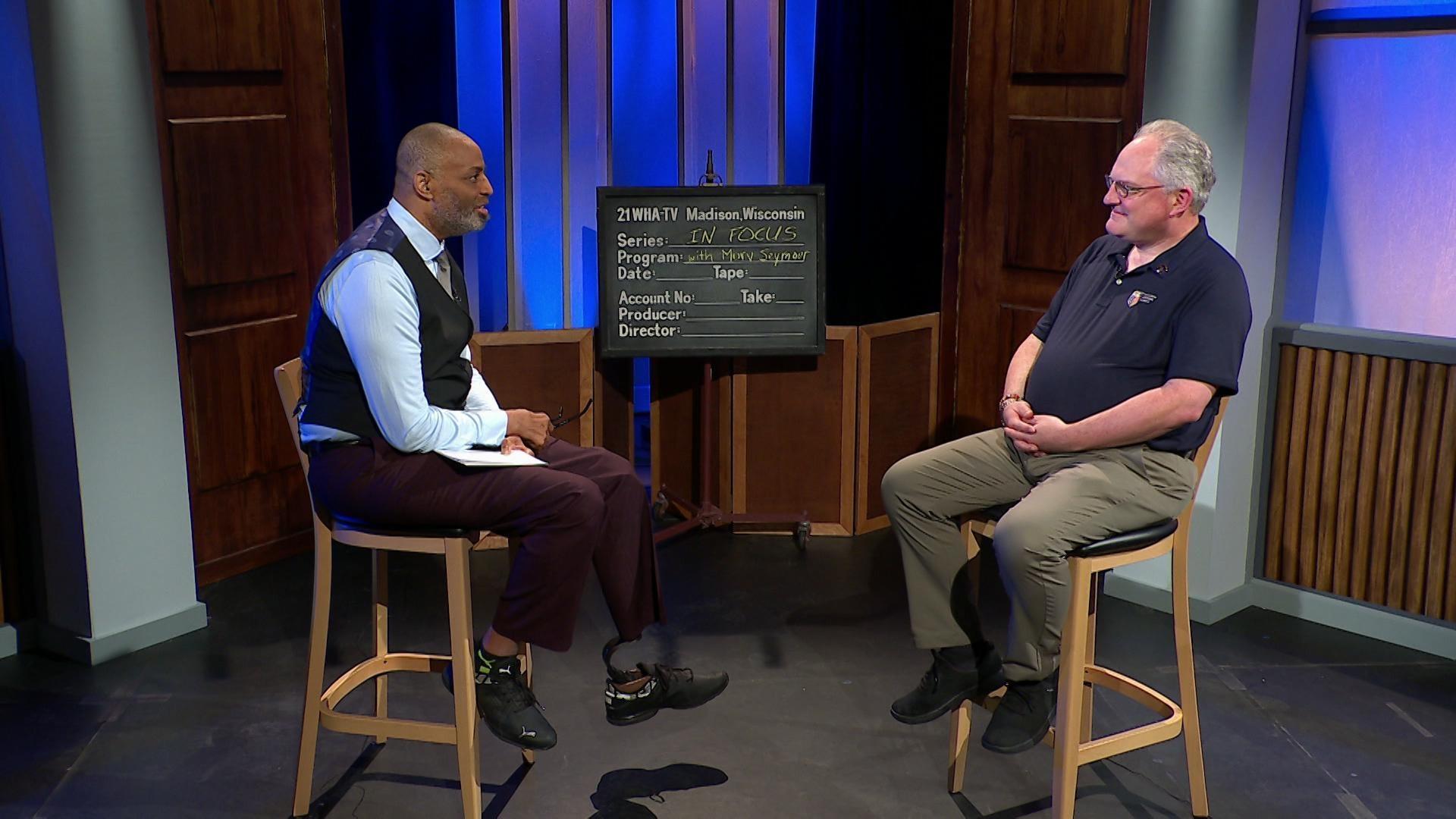
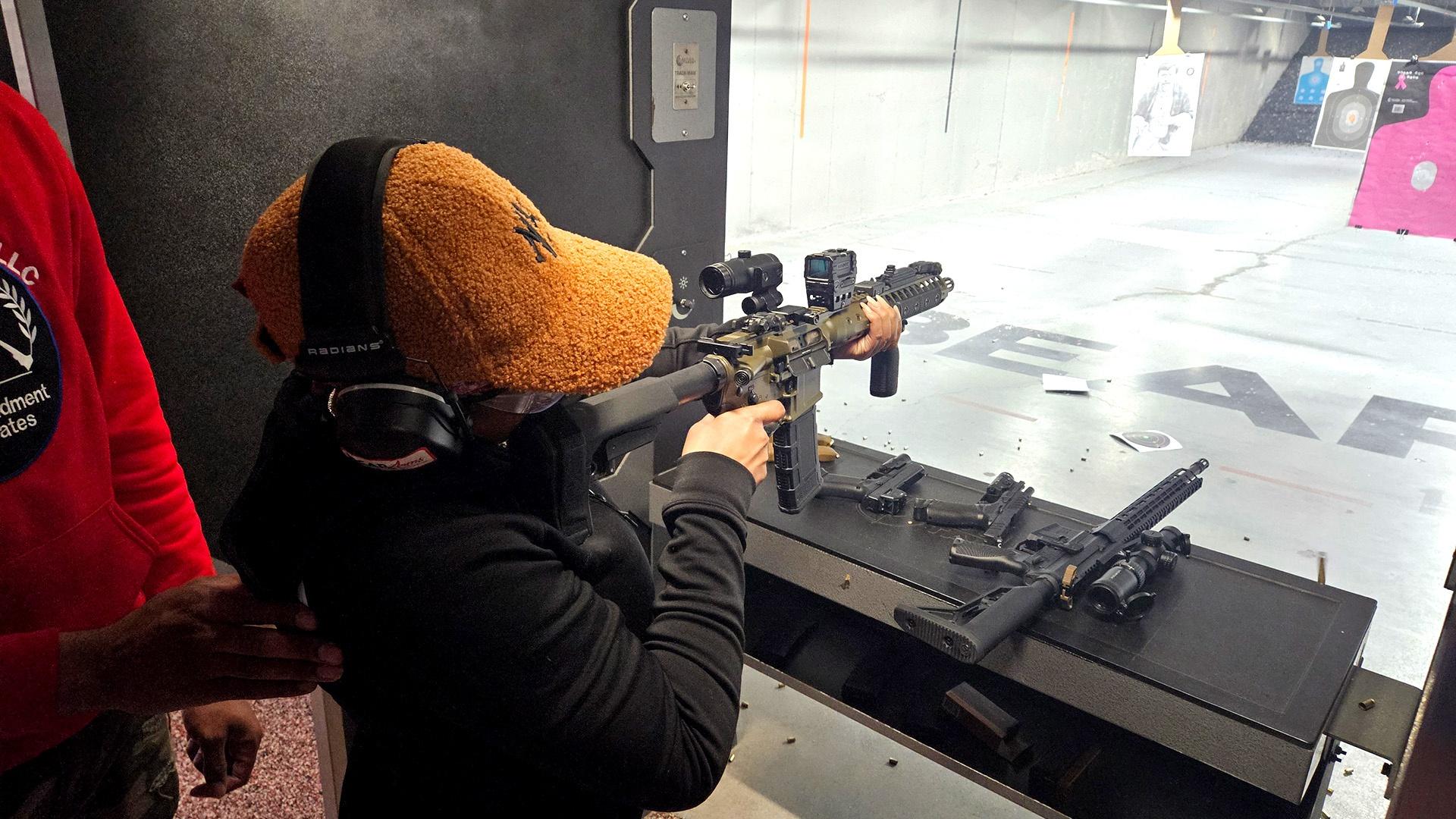
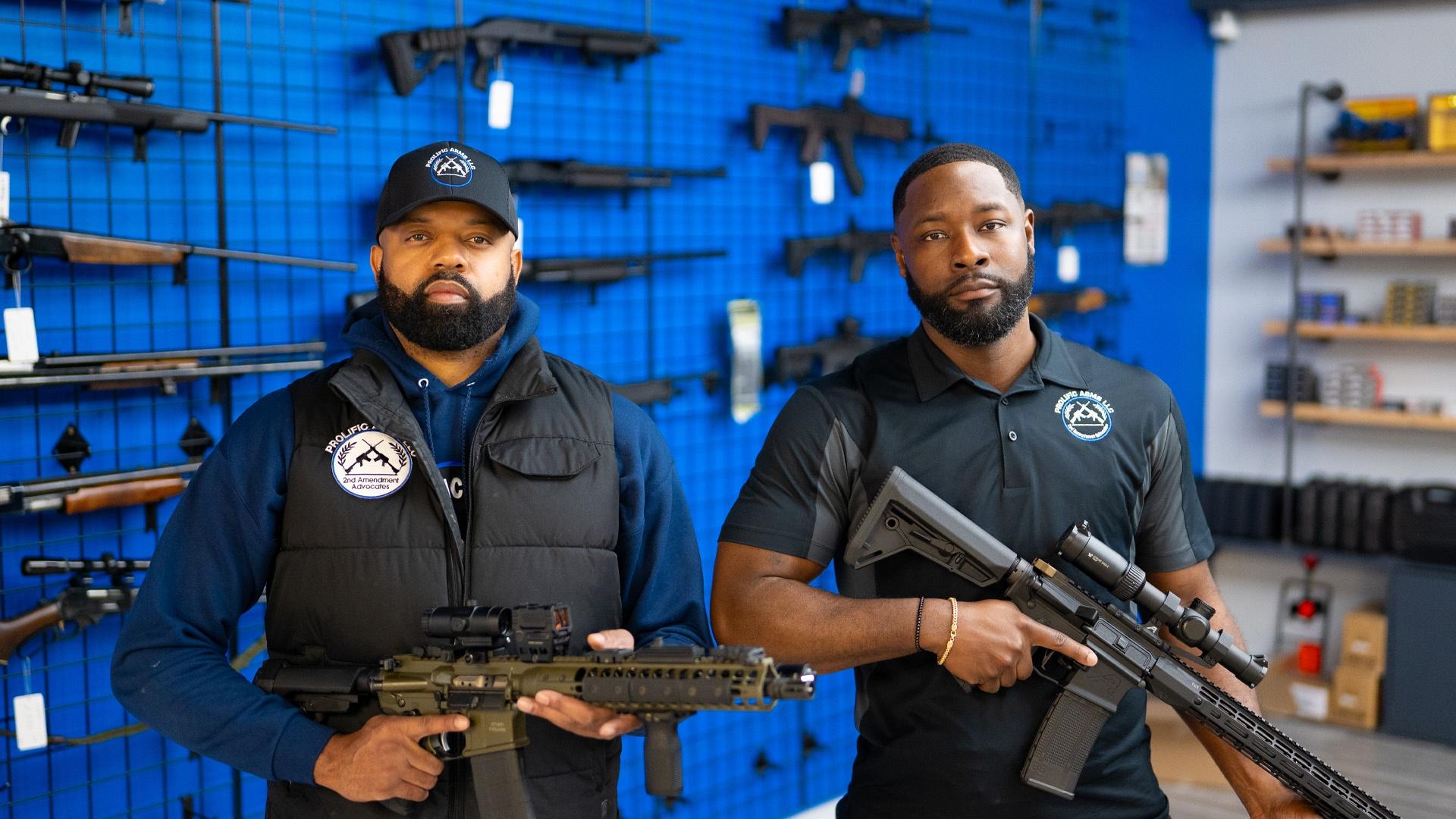
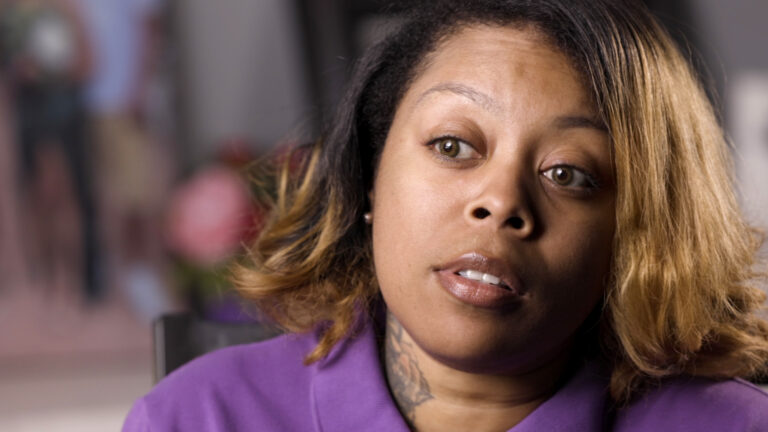
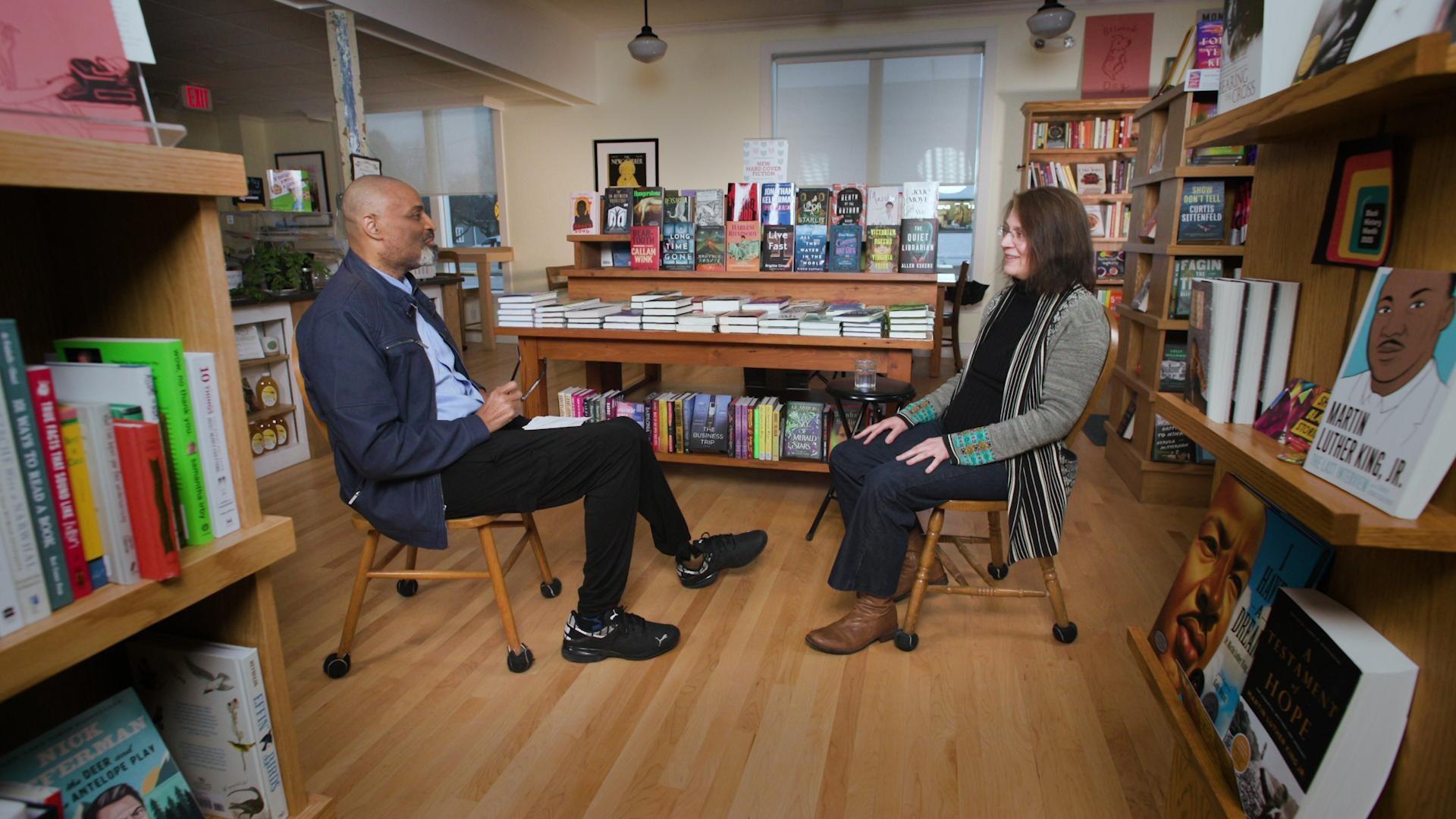
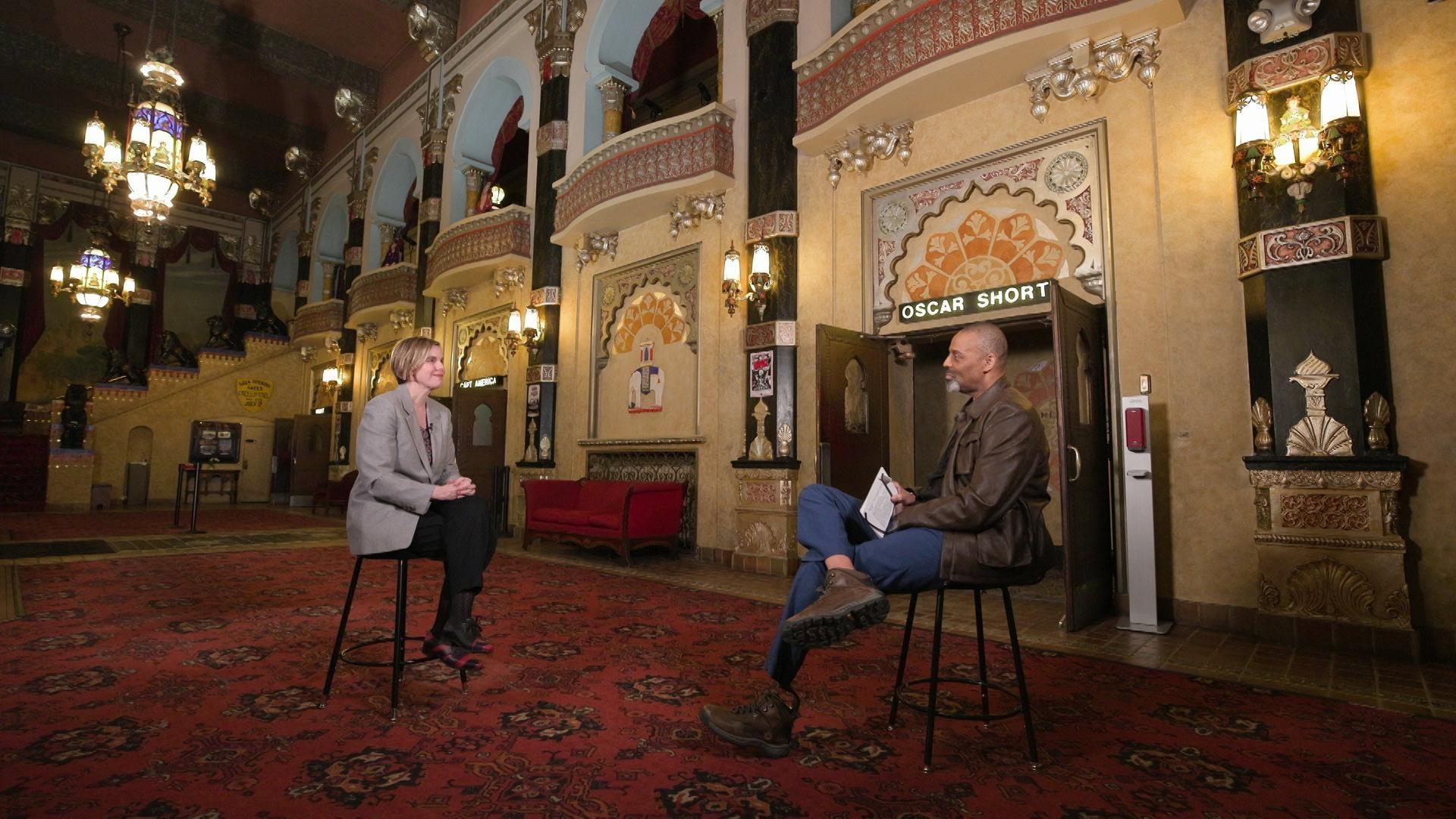

Follow Us